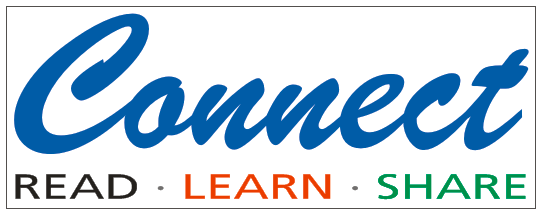"There is a special place in life that only you may share
a little path that bears your name, awaiting you somewhere
There is a hand that you must hold, a word that you must say
a smile that you must give, for there are tears to blot away."
a little path that bears your name, awaiting you somewhere
There is a hand that you must hold, a word that you must say
a smile that you must give, for there are tears to blot away."
(Read entire poem)
 |
| Helen Gamble with Richard Bay in The Practice. |
Yesterday, I had a meeting with a senior editor in a leading media house in Kenya.
As our meeting progressed, and having exhausted the crux of the main agenda, he shared priceless insights about the writing profession.He reminded me that many writers lack the grace to realize that writing invariably has dual benefits. For starters, every published article or book adds on to your experience, builds your name and presents a learning opportunity to write better next time. Secondly, monetary compensation is an additional reward. Sadly, many new writers focus too much on the monetary rewards of writing.
In addition, writing in itself is a journey. It is a process that takes years, if not a lifetime. The secret therefore is to enjoy the journey as well as the destination.
Many will not notice as you establish yourself gradually, one word at a time. They shall however notice suddenly once your book tops the bestsellers list. It takes time.
Later on, I had lunch with my adorable sister Winni in town, to discuss among many other things, our joint venture Complit Motivation & Inspiration.
I have at times felt discouraged, worn out, and have questioned my decision to become a full-time writer. Thankfully, I have never once thought of quitting.
In such trying moments, it helps to realize that it is all for a reason. Just like Helen Gamble felt after losing a case that elicited public discontent since a criminal everyone felt was guilty was set free. Helen seriously considered quitting. But the Assistant District Attorney, Richard Bay, gave her the following speech:
Helen Gamble: I need it, Richard. Give it to me.
Richard Bay: What?
Helen Gamble: The speech. Why we do what we do.
Richard Bay: Oh, I am not really in the mood after...
Helen Gamble: PLEASE, Richard. I NEED it. Please give it to me. And don't just phone it in.
Richard Bay: Helen...
Helen Gamble: Please! Can't you see how demoralized I am?
Richard Bay: OK. (takes a deep breath) There are heroes in this world. They're called District Attorneys. They don't get to have clients, people who smile at them at the end of the trial, who look them in the eye and say, "thank you." Nobody is there to appreciate the District Attorney, because we work for the state. And our gratitude comes only from knowing there's a tide out there. A tide the size of a tsunami coming out of a bottomless cesspool. A tide called crime, which, if left unchecked will rob every American of his freedom. A tide which strips individuals of the privilege of being able to, to walk down a dark street or take twenty dollars out of an ATM machine without fear of being mugged. All Congress does is talk, but it's the District Attorney who grabs his sword, who digs into the trenches and fights the fight. Who dogs justice day, after day, after day without thanks, without so much as a simple pat on the back. But we do it. We do it, we do it because we are the crusaders, the last frontier of American justice. Knowing that if a man cannot feel safe, he can never, never feel free.
Helen Gamble: Thank you.
Writing can often feel like a draining effort that few appreciate. Many writers, even the most successful ones, often speak of writing as a journey, a process wrought with countless ups and downs. When she delivered a commencement address at Harvard in 2008, J.K.Rowling highlighted the fringe benefits of failure and the importance of imagination.
From the foregoing speech,following are salient gems:
- Ultimately, we all have to decide for ourselves what constitutes failure, but the world is quite eager to give you a set of criteria if you let it.
- So why do I talk about the benefits of failure? Simply because failure meant a stripping away of the inessential. I stopped pretending to myself that I was anything other than what I was, and began to direct all my energy into finishing the only work that mattered to me.
- Failure gave me an inner security that I had never attained by passing examinations. Failure taught me things about myself that I could have learned no other way.
- ..personal happiness lies in knowing that life is not a check-list of acquisition or achievement. Your qualifications, your CV, are not your life, though you will meet many people of my age and older who confuse the two. Life is difficult, and complicated, and beyond anyone’s total control, and the humility to know that will enable you to survive its vicissitudes.
- As is a tale, so is life: not how long it is, but how good it is, is what matters.
Read more about: detremination, failure, freelancing, Harvard, imagination, JK Rowling, publishing, Writing








